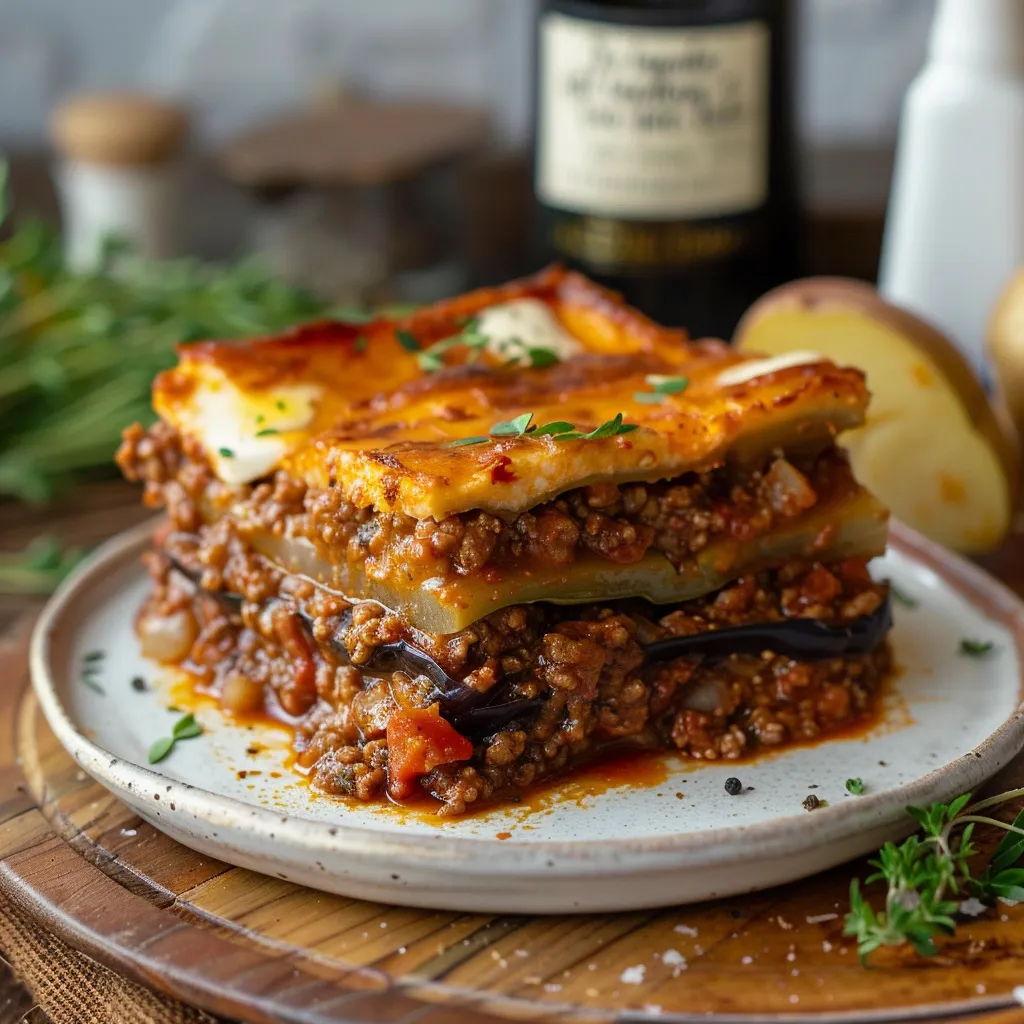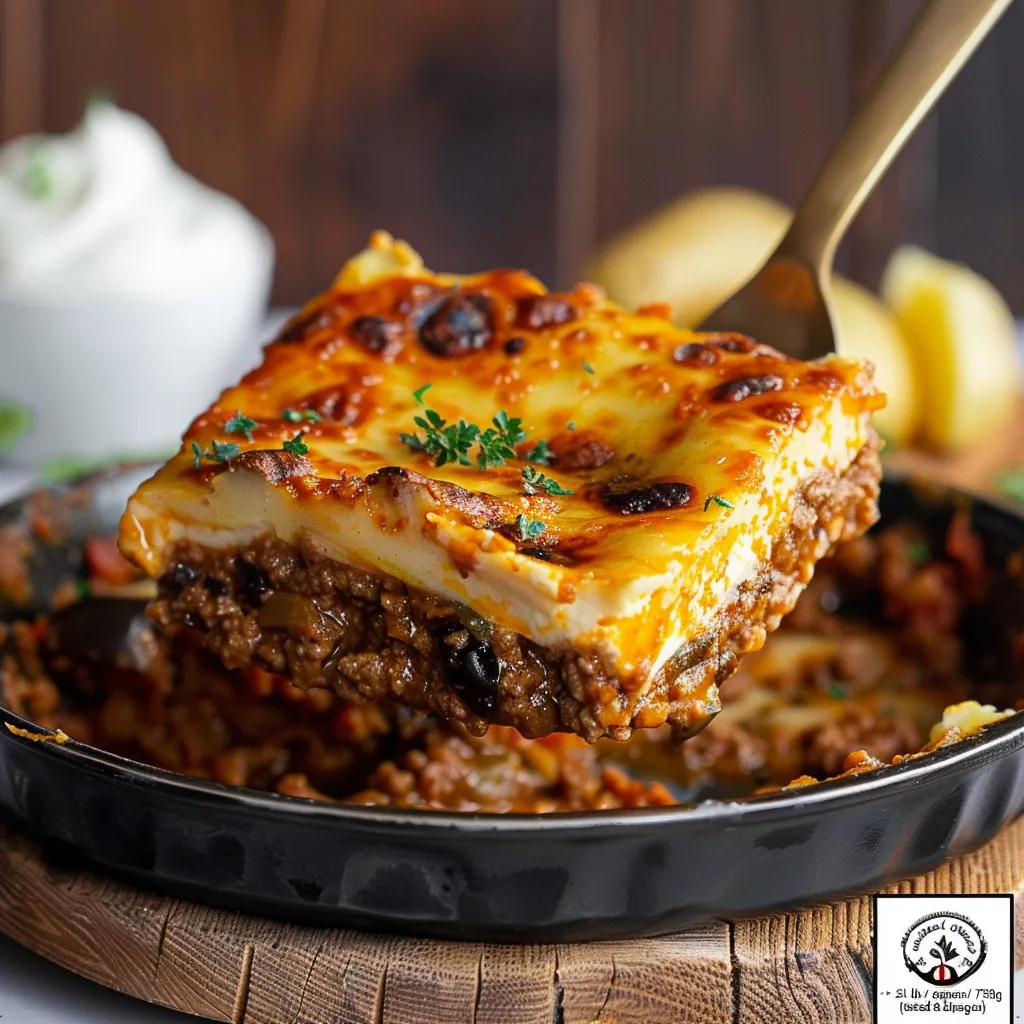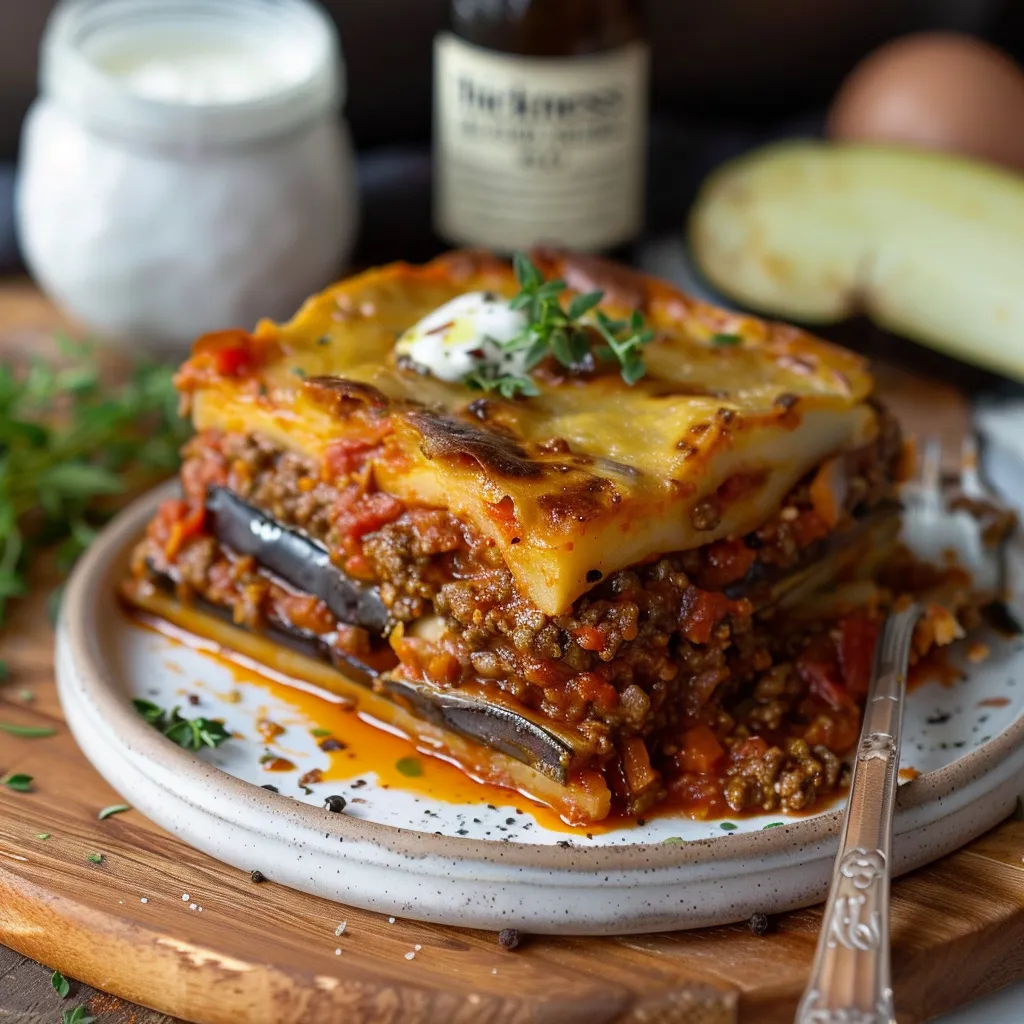 Pin it
Pin it
Building the ultimate Moussaka feels like conducting a culinary concert where every layer plays a critical part. I first fell in love with this Greek masterpiece at a tiny seaside restaurant along the Mediterranean. After many tries and tweaks, I've learned that magic happens not just from what you put in, but how carefully you handle each element. When the savory meat base, soft veggies, and silky béchamel come together, they create something truly unforgettable.
When I made this for guests a few weeks back, an elderly Greek woman asked me for my secrets. I'll never forget that moment! My trick was never rushing - especially when drawing moisture from the eggplant and letting those meat flavors really develop.
Key Components
- Ground Beef: Go for 80/20 to get just the right mix of juiciness and texture.
- Eggplant: Pick shiny, firm ones without too many seeds inside.
- Red Wine: Don't skimp here - you need something bold that can stand up to the other flavors.
- Cinnamon: Just a small amount completely transforms your meat mixture.
- Fresh Herbs: Parsley and thyme bring brightness and complexity.
- Whole Milk: You can't make proper creamy béchamel without it.
- Pecorino Cheese: Gives that sharp, salty kick that works perfectly with the creamy topping.
- Nutmeg: Try to grate it fresh - you'll definitely notice the difference.
 Pin it
Pin it
Step-by-Step Cooking Guide
- Creating the Meat Base
- Pour olive oil into a big pot over medium heat. Cook diced onions until they turn soft and clear. Toss in garlic and cook just until you can smell it. Add meat and brown it completely, breaking it into tiny bits. Mix in tomato paste and cook until it darkens slightly. Pour in wine and let it bubble away until half gone. Add your stock, passata, and herbs. Let everything bubble gently for 45-60 minutes until it thickens up. Add salt and pepper bit by bit as you cook.
- Handling the Vegetables
- Cut eggplant into rounds about 1/4-inch thick. Sprinkle plenty of salt and let them sit for 30 minutes. Slice potatoes and zucchini to the same thickness. Make sure all veggies are completely dry before cooking. Get oil very hot in a big pan. Fry each veggie until golden. Put them on wire racks to drain, not paper towels. Season while they're still hot.
- Making the Topping
- Melt butter in a thick-bottomed pan. Stir in flour until it smells nutty and looks golden. Slowly pour in warm milk, stirring non-stop. Keep cooking until the sauce coats the back of a spoon. Add salt, pepper, and nutmeg. Take it off the heat before mixing in egg yolks. Add cheese and stir until smooth.
- Putting It All Together
- Grease your baking dish completely. Lay potatoes in an overlapping pattern. Add zucchini running the opposite direction. Place first layer of eggplant. Spread meat mixture evenly. Top with remaining eggplant. Pour béchamel over everything and sprinkle extra cheese on top.
My time in Greece taught me one thing - great Moussaka needs time and care. Try to hurry any part and the whole dish suffers.
Controlling Your Heat
Keep your meat mixture barely bubbling to build flavor without getting too thick. When you're frying the veggies, make sure your oil stays at the same temperature for even browning.
Planning Ahead Options
You can make all the parts separately up to two days early. Either put it together and bake right before eating, or assemble the whole thing and keep it in the fridge overnight.
Balancing The Layers
Each part should keep its own character while working with everything else. Your veggies need to be soft but not mushy, and your meat mixture should be rich without being too wet.
This Moussaka comes from years of practice and fine-tuning. It shows off what makes Greek cooking so wonderful - simple stuff turned amazing through careful methods and plenty of patience. The way the flavors and textures stack up makes something that's both homey and fancy at the same time.
 Pin it
Pin it
Frequently Asked Questions
- → Can I make the dish in advance?
- Yes, you can prep the beef layer ahead, or even assemble the dish and store it in the fridge before baking.
- → Can I roast the veggies instead of frying?
- Absolutely—you can roast eggplant, zucchini, and potatoes at 200C/390F with olive oil until they're soft and golden.
- → How long will leftovers last?
- You can store leftovers in the fridge for 3-4 days or freeze them for up to a month.
- → What cheese should I use?
- You can use Kefalotiri, Pecorino Romano, or even Parmesan for the topping.
- → Why salt the eggplant first?
- It helps remove extra water and cuts down on any bitterness in the eggplant.
